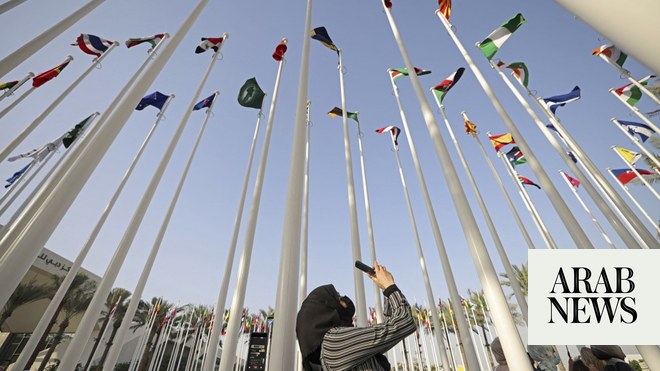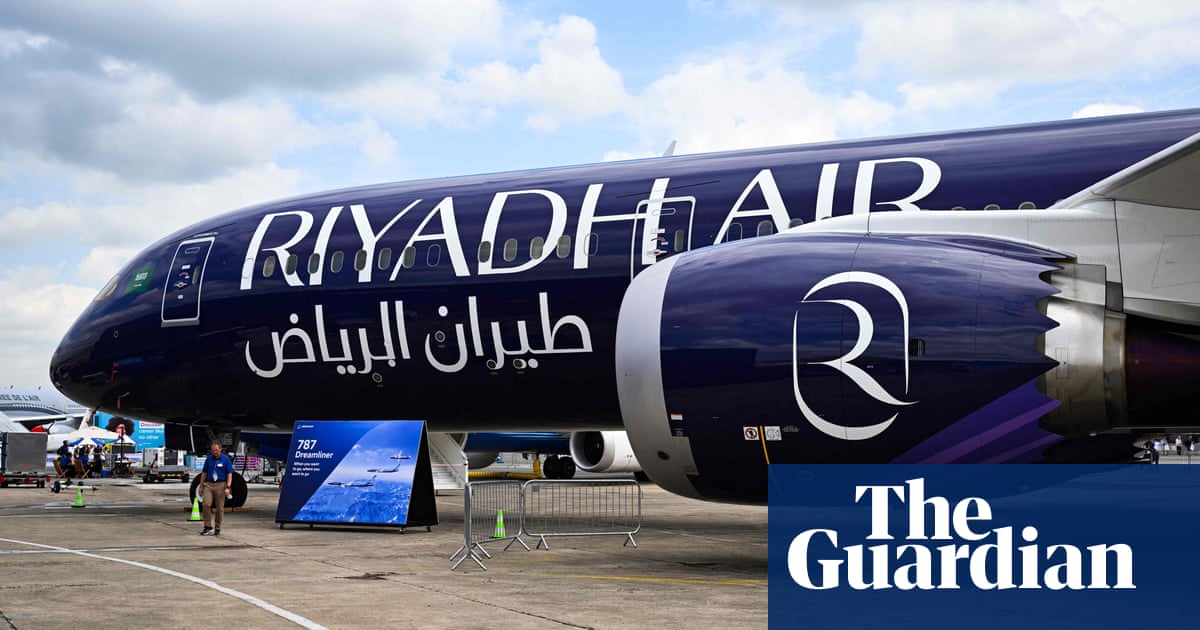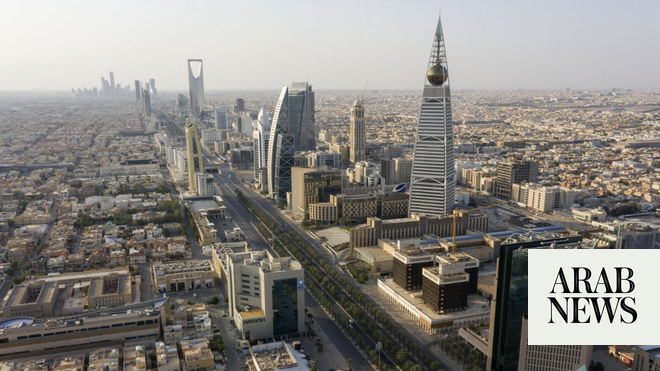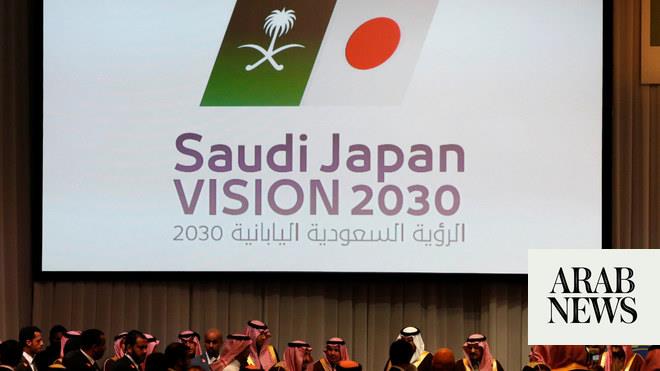
UAE enters top 10 of Global Soft Power Index for the first time
Saudi Arabia up five places to 19 in ranking by Brand Finance
LONDON: Gulf nations have made significant improvements in the 2023 Brand Finance Global Soft Power Index, with Qatar, UAE and Saudi Arabia leading the rest of the Arab region.
Arab nations have continued to emerge as key players in this particular study, produced annually by Brand Finance.
Soft power experts, researchers and government delegates met at Queen Elizabeth II Centre in London on Thursday to discuss the index, which is billed as the world’s most comprehensive study on perceptions of nations as brands.
The UAE jumped five places to enter the top 10 for the first time since the index was started in 2020. Brand Finance’s Chairman and CEO David Haigh described it as a “stellar performance.”
Saudi Arabia was confirmed as the second among Arab nations with a rank of 19, up five positions compared to last year.
Favored by a shifting energy landscape, the Kingdom scored 51.3 out of 100 index points, 4.1 point increase on the previous year’s score.
“I was not surprised to see UAE in the top 10, and was not surprised seeing Saudi Arabia entering the top 20,” said Lord Ed Vaizey, a former UK minister of culture. The Gulf nations’ soft power “really does pay a difference.”
Qatar also rose in the ranks, thanks in large part to the hosting of the football World Cup.
The US held top spot and further increased its lead over other nations, with an overall score of 74.8, a 4.1-point increase on last year. It was followed by the UK and Germany.
According to Andrew Campbell, managing director of Brand Finance Middle East, the new rankings show that Saudi Arabia has all the attributes to become a soft power player within the Middle East and across the world.
“The UAE is showing the way, showing what it can be done. And we have seen Saudi Arabia coming up strongly, into the top 20 for the first time in our global rankings,” Campbell told Arab News.
“With its very strong diplomatic roots, strong international relations, respected leaders and the economy being strong and stable, Saudi Arabia is now emerging, coming up as a significant soft power.”
The Kingdom, which has made ‘soft power’ a priority in its Vision 2030, advanced to ninth in the index’s ‘influence’ ranking on the back of a strong economic position and promotion of its cultural heritage.
Being home to one-quarter of the world’s known oil reserves and with the largest output of oil production globally, this year’s report reflected the nation’s crucial role in providing energy security for the rest of the world, with the country climbing 7 places to 14th in the “strong and stable economy” index.
Haigh however said in his speech that the Kingdom has proved an ability to look beyond oil, and praised its continued efforts to diversify the economy. Its growing appeal as a tourist destination saw the Kingdom’s rank 11th in the ‘rich heritage’ category.
Saudi Arabia has also performed well in other categories including ‘investment in green energy and technologies,’ where it ranked 25th.
It ranked 27th on ‘sustainable cities and transport,’ further demonstrating its commitment to a transition to a more sustainable economy.
The UAE performed well in a number of categories, most notably ‘reputation’ and ‘influence’ as it enjoyed a successful EXPO 2020 and prepares to host the COP 28 climate summit.
“The UAE was one of the first economies to roll out mass vaccination and open during the COVID-19 pandemic, giving it a head start ahead of others and allowing it to maintain positive perceptions across … business and trade, with a particular improvement on the ‘future growth potential’ attribute, where it ranks third globally,” Haigh said.
The UAE’s Minister of State for Foreign Trade Thani bin Ahmed Al-Zeyoudi said his country was doing a good job establishing soft power because it embraces diversity and strives to be open and welcoming.
During his speech in London, Al-Zeyoudi defended the UAE’s decision to appoint Sultan Al-Jaber, CEO of the Abu Dhabi National Oil Company, as president of COP28, pointing out the importance of having the private sector at the table where this conversation happens because that is “where the money is, the talent is and the solutions are.”
He said the UAE was committed to transforming its global image, and that his country had cut its direct dependence on oil and gas to a historic low of 30 percent of its GDP. It had made significant investments in other industries, he added.
Campbell said that Gulf nations, in particular the UAE and Saudi Arabia, were undergoing a major economic transformation as reflected by the index’s results.
He said both were successful soft power stories because their leaders “have created a vision, decided where they want to go, and followed a very clear path developing their economies, their international relations, their tourism infrastructure, their education and health and so on. They are building all the pillars which influence soft power.”
Brand Finance said that the index scores were based on a variety of metrics, which in combination provided “a balanced and holistic assessment of nations’ presence, reputation, and impact on the world’s stage.”
These include: Familiarity, influence, reputation and performance, with the latter being based on the eight pillars that are business and trade, governance, international relations, culture and heritage, media and communication, education and science, people and values as well as sustainable future.
Soft power is a term coined in 1990 by Joseph Nye, a political scientist and former US assistant secretary of defense, to refer to a nation’s ability to gain desired outcomes through persuasion, rather than by means of coercion or payment.
It can be used to appeal to countries instead of coercing them, in contrast to the traditional hard power approach that relies on military and economic means.
In his opening remarks, Haigh said that while the world had been “dominated by hard power” in the previous 12 months, “soft power actually provides the way out” and will ultimately lead to more peace and prosperity.
This year’s summit was largely dominated by the Ukraine-Russia conflict.
In an event packed with international speakers and world leaders, including Ukraine’s Minister of Foreign Affair Dmytro Kuleba, Boris Johnson gave his first speech in Europe since being deposed as prime minister by his own party.
Johnson commended Ukraine’s ability to use soft power to gain international support.
Besides the UAE, Saudi Arabia, and Qatar, 10 other Arab nations were included in this year’s Global Soft Power Index.
Kuwait, Egypt and Oman ranked third, fourth, fifth and sixth, respectively, followed by Bahrain, Jordan, Morocco, Tunisia, Algeria and Iraq which rank from seventh to 13th.











